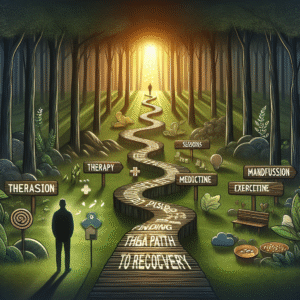In today’s fast-paced world, saying “yes” is often our default response. Whether it’s to requests from friends, family, colleagues, or even societal pressures, many people struggle to say “no.” However, learning to set boundaries and confidently say no is a powerful form of self-care. In fact, saying no is crucial for managing personal energy and avoiding burnout.
Setting boundaries isn’t about being selfish—it’s about recognizing your limits, protecting your time, and prioritizing your well-being. When you say no, you preserve your energy and mental health, allowing you to give your best in the areas that truly matter. In this post, we’ll explore the importance of boundaries, how to say no without guilt, and how boundaries can help you manage your energy and prevent burnout.
1. Boundaries Are Essential for Energy Management
Energy is a limited resource. Whether it’s physical, mental, or emotional energy, we all have a finite amount to expend each day. When you say yes to every request or obligation, you’re spreading yourself thin. You risk overcommitting and depleting your energy reserves, which can lead to exhaustion, stress, and burnout.
By setting boundaries and saying no, you can protect your energy and focus it on the things that matter most. Establishing clear limits on your time and emotional investments helps you stay energized and engaged, rather than running on empty.
How to Practice Energy Management:
- Recognize your limits: Know when you’re at capacity and when you need a break.
- Prioritize your commitments: Focus on the tasks, relationships, and activities that align with your goals and values.
- Give yourself permission to decline: Understand that it’s okay to say no to requests that don’t serve your well-being.
2. Burnout Is Real—And Saying No Helps Prevent It
Burnout isn’t just a buzzword; it’s a legitimate physical and mental health concern. Burnout occurs when prolonged stress overwhelms your ability to cope with demands. It’s characterized by fatigue, lack of motivation, irritability, and emotional exhaustion. In the modern world, where many people are juggling multiple roles—whether at work, in family life, or in social obligations—burnout is becoming more and more common.
Learning how to say no is a key strategy in preventing burnout. It helps you regain control of your time and energy. It allows you to avoid taking on more than you can handle, ensuring you maintain a healthy balance between work, personal life, and self-care.
The Connection Between Boundaries and Burnout:
- Saying no helps you avoid overcommitting: Taking on too many responsibilities or trying to please everyone can leave you feeling depleted. Boundaries prevent you from overextending yourself.
- Saying no preserves your mental health: Protecting your emotional energy prevents you from feeling emotionally drained or overwhelmed.
- Saying no allows time for rest: When you say no, you give yourself space to relax, recharge, and practice self-care.
3. Saying No Is a Form of Self-Respect
Setting boundaries is an act of self-respect. It’s a recognition that your time and energy are valuable, and that your needs and well-being matter. Saying no communicates to others—and to yourself—that you are not willing to sacrifice your health and happiness for the sake of others’ expectations or demands.
People often feel guilty about saying no because they’re afraid to let others down. However, consistently saying yes can lead to resentment and frustration. Saying no allows you to honor your own needs, without sacrificing your sense of self or your well-being.
How Saying No Reflects Self-Respect:
- You protect your time and energy: Saying no ensures you’re not constantly overextending yourself and draining your resources.
You assert your priorities: Saying no means you’re making space for what aligns with your goals and values, rather than being at the mercy of other people’s agendas. - You build healthy relationships: By setting boundaries, you teach others to respect your time and limits, which leads to healthier, more balanced relationships.
4. Overcoming Guilt Around Saying No
One of the biggest barriers to setting boundaries is guilt. Overcoming guilt starts with recognizing that your needs matter just as much as anyone else’s. It’s important to remind yourself that taking care of yourself isn’t selfish—it’s necessary. Without boundaries, you won’t be able to show up fully for others or do your best work.
Strategies to Overcome Guilt:
- Reframe your thinking: Instead of thinking of saying no as a negative, view it as an act of self-care that allows you to maintain your mental and emotional health.
- Remember that saying no doesn’t mean you don’t care: Saying no doesn’t mean you’re abandoning others—it means you’re prioritizing your well-being so that you can be more present when you do say yes.
- Start small: If saying no feels difficult, start by setting small boundaries in less challenging situations. Gradually, it will become easier to say no when needed.
5. Setting Boundaries at Work
Workplace stress is one of the leading causes of burnout. Overloading yourself with too many projects, agreeing to work overtime, or constantly saying yes to new tasks can quickly lead to exhaustion and resentment.
How to Set Boundaries at Work:
- Set clear expectations: Communicate your limits to your colleagues and supervisors. Let them know what you can realistically take on without overburdening yourself.
- Don’t overcommit: If you’re already busy, be honest and say no to additional tasks that aren’t critical or that could push you past your limit.
- Respect your personal time: Don’t check work emails or take business calls outside of your working hours.
6. Setting Boundaries in Personal Relationships
In personal relationships, it can be difficult to say no, especially if you want to please others or avoid conflict. But healthy relationships require mutual respect, and part of that respect involves acknowledging each other’s boundaries.
How to Set Boundaries in Personal Relationships:
- Communicate openly: Let your friends and family know what you need in terms of personal space, time, and energy.
- Be firm but kind: You don’t need to feel guilty or apologize when setting boundaries. Saying no doesn’t make you a bad person—it only shows you value your well-being.
- Prioritize yourself when necessary: Don’t feel obligated to always say yes, especially when it compromises your mental or emotional health.
What areas of your life could benefit from new boundaries? We’re confident that the tips in this article can guide you in setting them. Remember, boundaries are essential for protecting your time, conserving your energy, and ensuring you can prioritize what truly matters. Even when it feels challenging, learning to say “no” when necessary can help you maintain balance and well-being, and the rewards will make your effort worthwhile.






